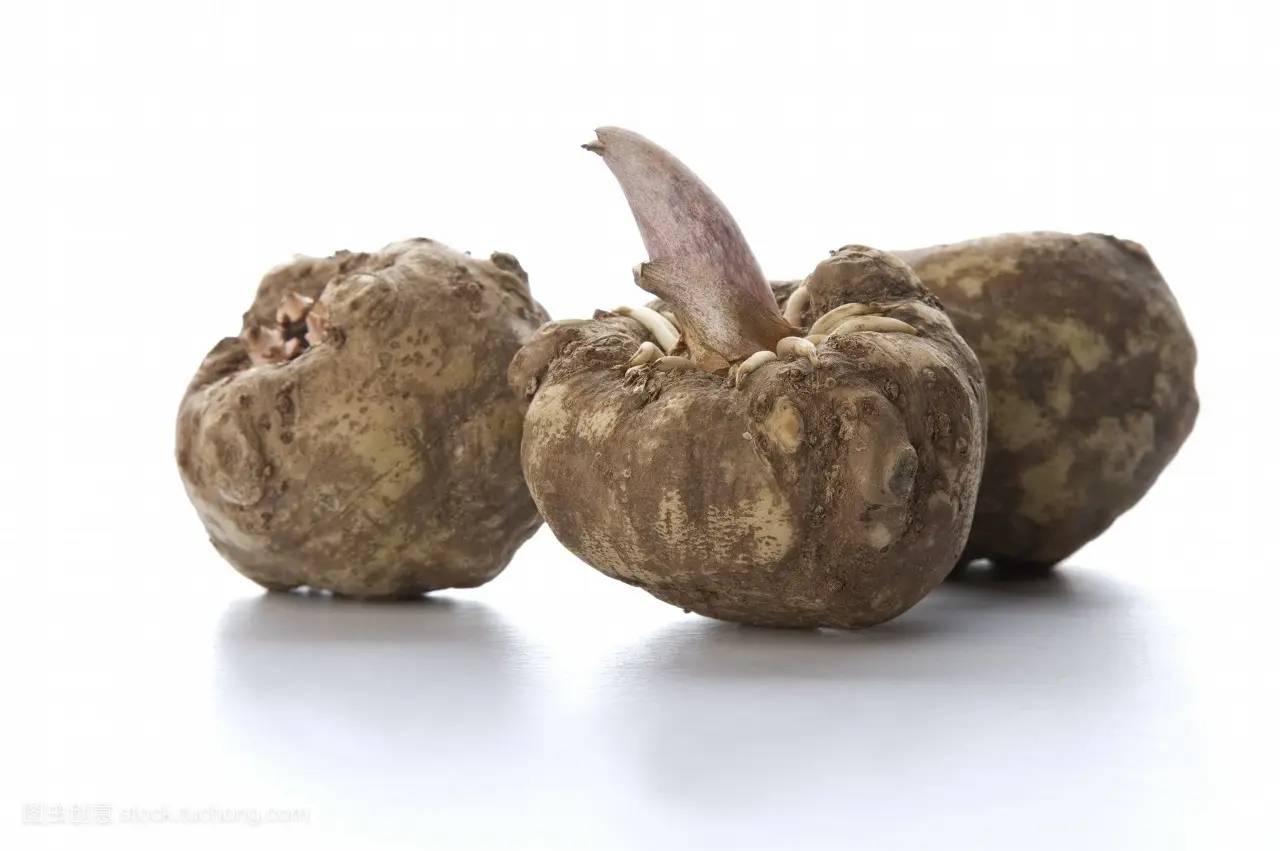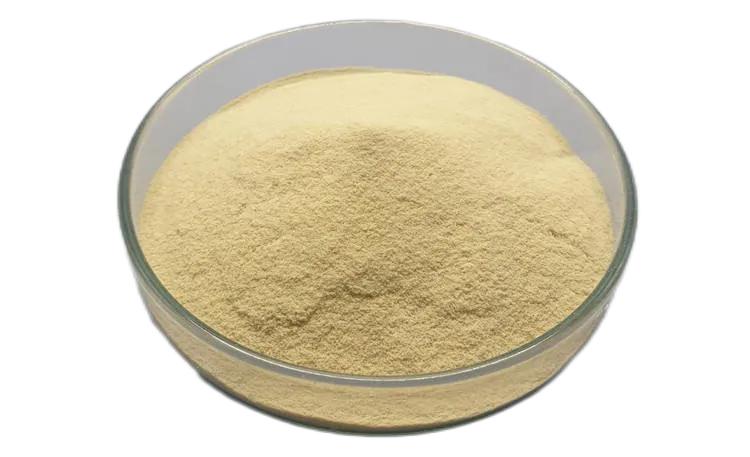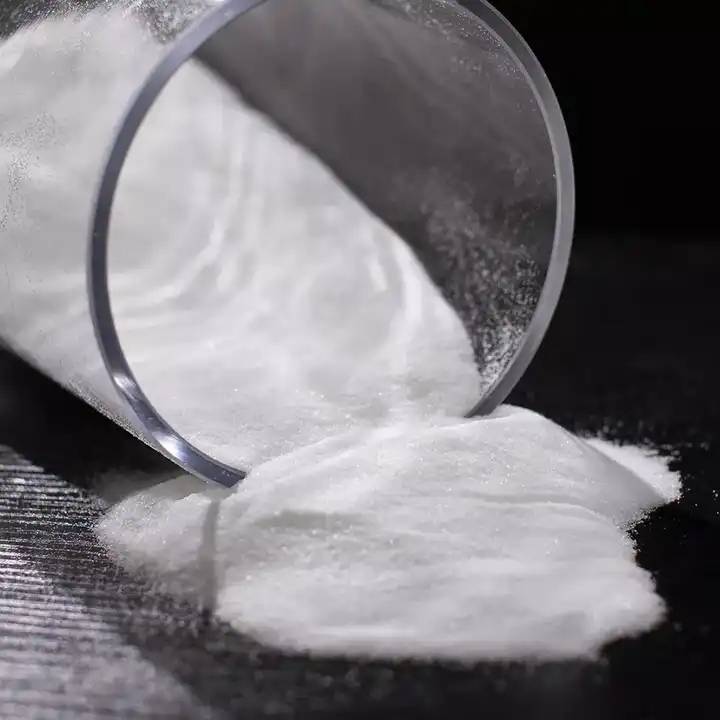Natural Konjac Ceramide
Product Name:Natural Konjac Ceramide 3%
Assay:Glucosyl Ceramide:≥ 3.0%
Testing Method:HPLC
Appearance:Light Brown Fine Powder
Pesticide Residue:Comply with (EC) No 396/2005 Standard
- Description
- Data Sheet
- Certificate
-
What is Konjac Ceramide?
Ceramides are a class of amide compounds formed by the dehydration of long-chain fatty acids with the amino group of sphingomyelin. The main ones are ceramide phosphorylcholine and ceramide phosphatidylethanolamine, and phospholipids are the main components of cell membranes. 40% to 50% of the sebum in the stratum corneum consists of ceramides, which are a major part of the intercellular matrix. It plays an important role in maintaining the balance of water in the stratum corneum. Ceramide has a strong ability to bind water molecules, and it maintains skin moisture by forming a mesh structure in the stratum corneum. Therefore, ceramides can maintain skin moisture.
Naturally sourced ceramides come from both animal and plant sources. Phytoceramides are ceramide components extracted from plants such as konjac, rice, corn, and soybeans, and are ceramide-like compounds formed from phytosphingosine. Among them, konjac extracted ceramides have a relatively high content.
Green Spring Technology provides natural konjac ceramide 3% by HPLC, which is ceramides extracted from konjac using the ultrasonic leaching method. Its content is relatively high, healthy, and safe. Green Spring Technology has been specializing in botanical extracts for more than 20 years, and the company has a complete set of quality control management systems. From raw material konjac to the finished product of 3% konjac ceramide powder, the whole production process can be controlled and traced. Pesticide residues, solvent residues, heavy metal content, and other pollutants of the test are in line with the European Union Pharmacopoeia, the United States Pharmacopoeia, the Japanese Pharmacopoeia, and other international standards. We can provide professional third-party test reports.
Specification:
Product Name
Natural Konjac Ceramide 3%
Latin Name
Amorphophallus Rivieri Durieu
CAS No.
100403-19-8
Source
Konjac Roots
Active Ingredients
Glucosyl Ceramide
Assay
Glucosyl Ceramide:≥ 3.00%
Testing Method
HPLC
Appearance
Light Brown Fine Powder
Pesticide Residue
Comply with (EC) No 396/2005 Standard
Regulations:
It conforms to EU regulations.
Looking for a Quotation?Benefits:
Moisturising
Konjac ceramide contains two long-chain hydrocarbon groups and two to three hydroxyl groups that make it hydrophobic and hydrophilic at the same time, a property that is important for its water-retaining effect in the stratum corneum. In addition, ceramide can significantly promote the expression level of mRNA and protein of silk polymerisation protein. Silk polymerisation proteins are not only important structural proteins, but also a major source of moisturising factors. Some studies have shown that the moisturising effect of konjac ceramide is 16 times that of hyaluronic acid, which is a highly effective moisturising agent that is easily absorbed by the skin, and at the same time promotes the penetration of other nutrients, and has a moisturising effect of up to 80% on aged dry skin.
Anti-aging
Konjac ceramides are easily oxidized and have antioxidant properties. Some studies have shown that low concentrations of ceramide can stimulate fibroblast proliferation and inhibit the expression of matrix metalloproteinases. Therefore, konjac ceramides have some anti-aging properties. It has also been shown that water-soluble ceramides (wheat ceramides + digalactosyl diacylglycerides (DGDG)) have a triple anti-aging effect: firstly, they maintain the moisture of the epidermis by reducing water loss; secondly, they activate the activity of fibroblasts to produce collagen and other substances; and thirdly, they activate the activity of the enzyme inhibitor of the matrix metalloproteinase series (TIMP-1); water-soluble ceramides originating from plants Water-soluble ceramides derived from plants also have a significant effect on the inhibition of elastase and collagenase in human leukocytes.
Allergy Relief
Konjac Ceramides also can calm and improve cells, which can provide a powerful soothing effect on allergic skin that is prone to redness and itching. The adhesion between ceramides and cells enhances the ability of allergy-prone epidermal cells to regain some of their resistance and relieve allergy symptoms.
Anti-inflammatory
Tumor necrosis factor (TNF) is a positive regulator of inflammation and directly activates neutrophils. In recent years it has been shown that increasing the number of intracellular ceramides increases the amount of tumor necrosis factor in the body, which in turn triggers apoptosis in a variety of cells. The effect of ceramide on positive regulators of inflammation suggests that ceramide has an anti-inflammatory effect.
Applications:
In Cosmetics:
As an important physiological lipid in the stratum corneum, ceramide forms a mesh structure in the stratum corneum to enhance skin conductivity and water-locking function. Secondly, ceramide increases the thickness of the stratum corneum, improves the skin's ability to hold water, and increases skin elasticity. In addition, konjac ceramides can reduce skin inflammation, promote skin barrier repair, and maintain the stability of skin function, and have been used in various skin care cosmetics.
-
Download
Natural Konjac Ceramide COA


 English
English French
French Spanish
Spanish Russian
Russian Korean
Korean Japanese
Japanese










